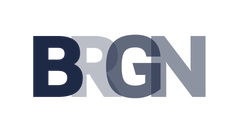Code of Conduct

Here at BRGN we do not take our social responsibility lightly. We know that the fashion industry is causing issues both regarding global warming, as well as difficult work environments in manufacturing. How do BRGN ensure the legal rights of our workers? Are they allowed to unionize? Where are the items produced?
In this article we will try to answer all these questions. If you have any concerns regarding this issue, please do not hesitate to contact us. We wish to be as transparent as possible when it comes to our responsibility and the measures we take to ensure the regulations are being followed.
Code of Conduct
BRGN’s Code of Conduct is a document explaining what we expect from any supplier and business partner. The Code of Conduct covers human rights, workers´ rights, the environment and animal welfare.
The code of conduct is based on and follows The Universal Declaration of Human Rights, key UN conventions, ILO conventions and recommendations (see list at end of code). All legal requirements and regulations in operating countries must be met. When new suppliers are selected, emphasis are given to social and environmental standards.
Factory visits
At BRGN we visit all our factories. We wish to both meet our suppliers and business partners in person, as well as have a look at the manufacturing process. The goal of these trips is to make sure that our Code of Conduct is being followed.
Production Countries
Our coats are produced in Vietnam and accessories in China. The fabric is weaved and dyed in Taiwan and China. BRGN Chelsea Boots and sneakers are produced in Ukraine, the Chelsea Boots are in fact hand made from European leather. The wool is sourced from Australia and China and the items are sown in China.
If you wish to read our complete Code of Conduct, click here.
Short summary of BRGN’s Code of Conduct
HUMAN RIGHTS AND LABOUR RIGHTS
We do not allow illegal workers or any kind of forced labour. Working hours should be kept under 48 hours per week with sufficient rest days, classified as at least 1 day off in a 7-day period. Workers are allowed to refuse working overtime, and this shall not be demanded on a regular basis.
PREVENTION OF CHILD LABOUR & PROTECTION OF YOUNG WORKERS
Suppliers are not to interfere with worker’s unions, and where these are prohibited by law, the employer shall facilitate, and not hinder, alternative forms of independent and free worker representation and negotiation, in accordance with international labour standards.
No children below the age of 15 can be employed in factories producing for BRGN AS. If the law states a higher age, the law must be followed. Young workers below the age of 18 can only under- take light work in the factory, and all laws concerning the treatment of young workers must be followed.
ADEQUATE COMPENSATION
The supplier shall always comply with current laws concerning compensation for work, including over- time payments and payment procedures.
FREEDOM FROM DISCRIMINATION AND HARASSMENT
Employees shall not be subjected to discrimination (including during recruitment, promotion, access to training, termination or retirement) regarding race, colour, caste, nationality, religion, gender, age, sexual orientation or marital status.
HEALTH & SAFETY
All employees shall undergo effective training and information sessions regarding health and safety precautions in the work place. Factory management should actively facilitate the establishment of workers’ health and safety committees. There must be a sufficient number of employees trained in first aid, and adequately stocked first aid kits available to all employees.
FIRE SAFETY AND EMERGENCY PREPAREDNESS
All fire safety precautions must be taken, including adequate warning systems. There must be a written and communicated emergency response procedure.
PROTECTION FROM CHEMICAL EXPOSURE
All safety precautions in regards to the use, storage and handling of chemicals must be taken, and employees must be sufficiently trained in handling chemicals.
KITCHENS, DINING AREAS AND DORMITORIES
Dormitory buildings shall be separate from the factory building. Dormitories must have sufficient living and storage space for workers, and all necessary services must be provided.
ENVIRONMENTAL PROTECTION
All national and regional environmental laws must be followed, and suppliers must set up an environmental management plan in order to minimize the effect of business activities on the environment.
CHEMICAL RESTRICTIONS
Suppliers must follow and comply with the current BRGN AS’s Chemical Restrictions (REACH). All chemicals and hazardous materials must be safely handled, transported and disposed of according to law with detailed records kept and a MSDS in the local language must be available where the chemicals are used.
WATER AND WASTE WATER MANAGEMENT
Suppliers should use water responsibly, and work to minimize their water footprint. This includes reducing water use and implementing water recycling as much as possible. Suppliers must treat and dispose of wastewater according to the local law or the benchmark guideline in the industry whichever is higher.
ENERGY EFFICIENCY, AIR EMISSIONS AND CLIMATE CHANGE (GHG EMISSIONS)
Suppliers should work to reduce energy consumption and greenhouse gas footprint. All emissions that are produced during production must be monitored and controlled, and treated as required by law.
This is a simplifed version of BRGN’s Code of Conduct. The complete document can be read here.



